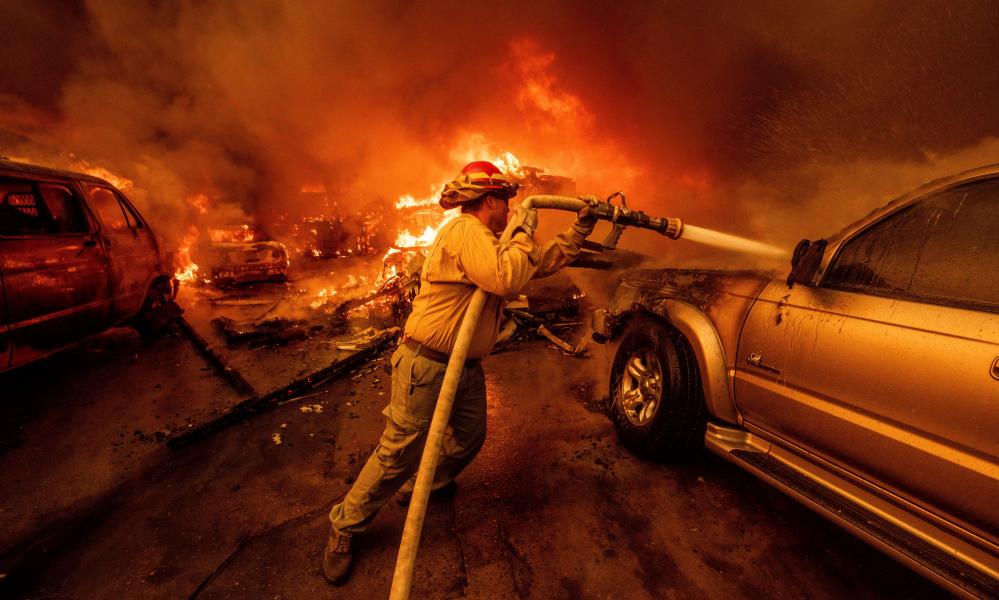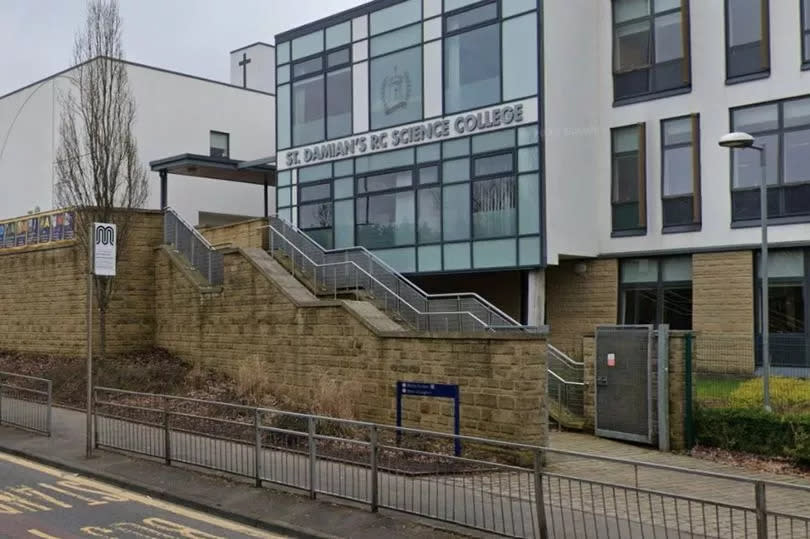
Hundreds of incarcerated firefighters are helping battle the destructive blazes that are rapidly spreading across southern California as a powerful windstorm devastates the region.
The California department of corrections and rehabilitation (CDCR) said on Wednesday that it had deployed 395 imprisoned firefighters across 29 crews while the county fights multiple out-of-control blazes fueled by extreme winds and dry conditions. The incarcerated crews are embedded with the California department of forestry and fire protection (Cal Fire) and its nearly 2,000 firefighters, who have been stretched thin from several simultaneous emergencies.
Related: At least five dead as overwhelmed firefighters struggle to contain LA blazes
Advertisement
Advertisement
CDCR operates more than 30 “fire camps” across the state where people serving state prison sentences are trained in firefighting and support authorities as they respond to fires, floods and other disasters. The sites, also called conservation camps, are considered minimum-security facilities.
California, which is grappling with longer and more destructive fire seasons amid the climate crisis, has long relied on incarcerated people for its response. The CDCR crews have at times accounted for as much as 30% of the wildfire force in the state.
The fire camp wages are meager, but are considered high-paying jobs behind bars, with CDCR firefighters earning between $5.80 and $10.24 a day and an additional $1 per hour when responding to active emergencies. When responding to disasters, they may earn $26.90 over a 24-hour shift, according to CDCR.
“Wildfires are a constant and formidable challenge for California, and CDCR conservation fire camps remain dedicated to supporting the state’s response,” Jeff Macomber, CDCR secretary, said in a statement on Wednesday. “The work of our incarcerated firefighters and staff is an essential part of this effort, and their commitment to protecting lives and property during these emergencies cannot be overstated.”
Advertisement
Advertisement
The fires this week have stretched from the Pacific Palisades, a picturesque community along the ocean, to Pasadena, east of the city of LA. At least five people were killed and more than 1,000 structures destroyed.
Participants in the program have said they appreciate higher wages and the opportunity to do meaningful work while serving their sentences, but the jobs can be taxing.
“The fire crews want to go out and support our communities and protect people and property,” said Amika Mota, an advocate who served with the fire camps from 2012 to 2015 while incarcerated, responding to more than 20 fires. “It’s horrific to see what’s unfolding, but I know the firefighters inside have a desire to take part and are walking into these horrible conditions proud to be there.”
Related: After ‘tremendous demand’, water tanks used for fighting LA wildfires ran dry early
Advertisement
Advertisement
More in U.S.
Mota, now the executive director of the Sister Warriors Freedom Coalition, a group that supports formerly and currently incarcerated people, said the firefighting wages were helpful, but that people still struggled to get by: “We’re doing this heroic, crucial work, but many people inside cannot support their family, can barely afford to just get hygiene [supplies] for themselves. Nobody is saving money with wages for when you go home. Nobody is able to send money to cover the expenses their children are incurring.”
Participants must have eight years or less on their sentence, and some convictions, including sex offenses and arson, are disqualifying.
Graduates of the program have reported difficulties accessing firefighting jobs once released despite their experience and training.
CDCR says some can seek professional emergency response certifications and expedited expungement once freed, and that a felony conviction doesn’t bar employment with Cal Fire. One 18-month training program helps participants become qualified to apply for entry-level firefighting jobs.
Advertisement
Advertisement
Mota recalled the grueling nature of the job: “We always had this reputation on the fire ground of being the ones who did the dirtiest work, the hardest work, got there the earliest, stayed there the longest. There was a lot of respect we’d get from other fire crews. But that also takes its toll.”
Still, she added: “The firefighters love to do this frontline work that’s fierce and intense and has the potential to save lives.”
EMEA Tribune is not involved in this news article, it is taken from our partners and or from the News Agencies. Copyright and Credit go to the News Agencies, email news@emeatribune.com Follow our WhatsApp verified Channel





